TravelingForMiles.com may receive commission from card issuers. Some or all of the card offers that appear on TravelingForMiles.com are from advertisers and may impact how and where card products appear on the site. TravelingForMiles.com does not include all card companies or all available card offers.
On the face of things, that can seem great (from a customer standpoint), but it does leave us with the question which asks who's shouldering the costs? I think we should know.
From what we’ve seen so far, before SpaceX will agree to enter into a contract with an airline to supply it with inflight ultra-fast WiFi, the airline has to agree to offer that WiFi free of change to all of its customers.
On the face of things, that can seem great (from a customer standpoint), but it does leave us with the question which asks who’s shouldering the costs? I think we should know.
Is SpaceX paying?
If SpaceX is giving its equipment and service away (which seems very, very unlikely), there must be some benefit (to SpaceX) to having hundreds of Starlink-equipped aircraft in the air at one time and thousands of people using the service (Elon Musk hasn’t got an altruistic bone in his body, so there must be some kind of price to pay).
If that’s the case (and given that Musk seems to enjoy modeling himself on the stereotypical Bond villain), I’d really like to know what that benefit is before I decide if “free” inflight ultra-fast WiFi is worth “the cost”.
Are the airlines paying?
If SpaceX isn’t giving away Starlink for free (or for very, very little), and as the flying public isn’t being asked to pay for inflight access, the airlines must be covering all of the costs, right?
I’m not so sure.
I have no idea how much SpaceX charges to install Starlink on an aircraft and I have no idea how much it charges to supply an aircraft with ultra-fast WiFi, but I’m reasonably sure that it isn’t super-cheap, so why would airlines (most of whom are more cost conscious than Scrooge McDuck) agree to take on all the costs and then give the service away with nothing in return?
Well, maybe that’s not really what’s happening. Perhaps they’re actually getting something in return.
The obvious way for airlines to recoup their costs would be to increase the cost of flying, but I’m not sure that’s a route most airlines will want to go down.
Airfares are very competitive, and time and time again history has taught us that the traveling public is rarely prepared to a pay a premium for a better inflight experience (it’s why most airlines don’t try to compete on the amount of legroom they offer and why Ryanair is so successful), so until most airlines have to factor in the cost of ultra-fast WiFi into their fares, I can’t see the Starlink-equipped airlines increasing prices to cover their costs. They would lose customers as soon as their prices went up.
So, what else can they do?
Well, every time I see a corporation giving something away for free (especially if it’s internet related) I remember this famous phrase:
“If you’re not paying for the product, you are the product”
And this leaves me wondering what it is that we (flyers using Starlink) are giving the airlines (or Starlink) in return for “free” ultra-fast WiFi?
Usually, if the internet is offering you something “for free” it’s only free because the supplier is harvesting your data and then either using it for their own purposes or selling it on to a third party to do with as they please (Meta is a great example of a company that does this), so maybe it’s data that the airlines and/or Starlink are after?
For some people (probably quite a few people), giving away data to the airlines and/or Starlink won’t be an issue because they’re happily giving away their data every day of their lives each time they use the internet, and that’s fine. That’s their choice.
I, however, would rather not do that and I’m sure I’m not alone in feeling that way, so it would be good to know if this is what’s going on and it would be good to know if a VPN will protect people from whatever data harvesting is going on.
Are advertisers paying?
It’s very possible that airlines plan to use the power of advertising to recoup the cost of Starlink because an aircraft with ultra-fast WiFi and between 300 and 400 passengers with little to do but stare at the screens directly ahead of them, will probably look very attractive to a lot of potential advertisers.
This way of airlines paying for Starlink doesn’t really worry me too much as I usually travel with my own pre-loaded entertainment (on my iPad and MacBook), so unless my seatback screen is actively turned on by the IFE system just to feed me some adverts (at which point I’d make a note never to fly with that airline again), I’ll be immune to whatever advertising blitz an airline decides to go with.
I can, however, see this being annoying for others.
Quite a few inflight entertainment systems already offer up too much advertising for people’s tastes (the continual pushing of co-branded credit cards on US airlines hasn’t gone unnoticed), so how will people feel if yet more adverts are served up?
How would you feel if whatever program you’re streaming over Starlink is interrupted by an advert that the airline wants you to watch? How will you feel if this happens three or four times per streamed movie (as well as in between whatever you choose you stream)?
How will you feel if you start getting pop-ups appear on your screen while you’re carefully crafting an email or a presentation?
That doesn’t sound like fun, does it? But are we sure it can’t/won’t happen?
Bottom line
I’m already on the record as saying that I’m not as excited as some people seem to be at the thought of ultra-fast WiFi being available on the flights I take, so it’s probably not much of a surprise to find out that I’d really like to know who’s actually paying for the cost of installing, providing and maintaining the inflight systems.
Let me be clear, I have absolutely no idea how the Starlink installation projects are being paid for or how SpaceX and the airlines plan to recoup whatever costs they’re incurring, so the suggestions I’ve put forward in this article are just that – suggestions.
But that shouldn’t take away from the fact that if tens of thousands of people are going to be using this new inflight benefit every year, it would be nice to know if we, the flying public, are paying for this in a way that, perhaps, some of us wouldn’t be comfortable with.
What do you think? Do you care how or who inflight ultra-fast WiFi is being paid for or is this not worth thinking about?

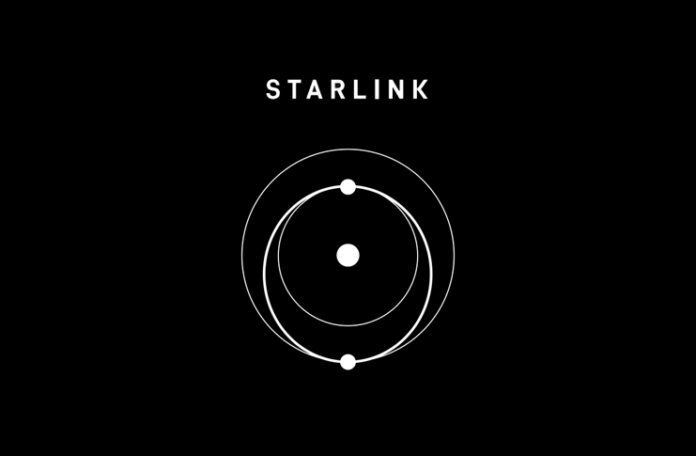

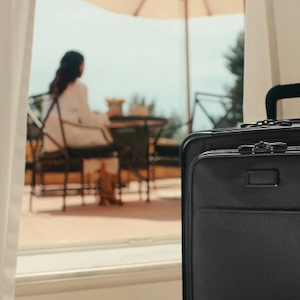
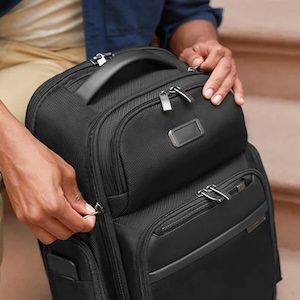
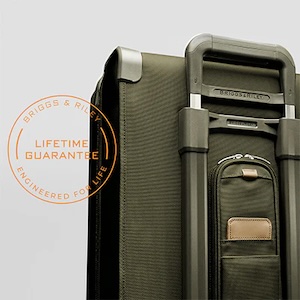



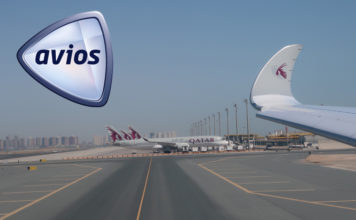


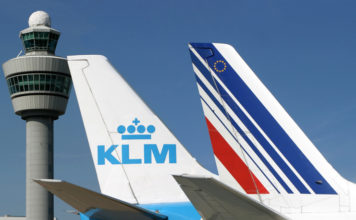





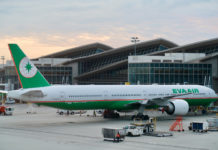

It’s probably good to know, but I think it’s less of a deal than you’re making it sound like. I don’t think it’s possible to interrupt what you’re streaming over WiFi with an ad just based on the network you’re connected to, you would need to be on their current platform, at which point you’re just matching the current state of IFE on some airlines. The current reason for free Starlink is simple and it’s the same reason why Starbucks offers free WiFi – it’s a differentiating factor for the airline. If you’re flying to the Middle East, and you need to work or just want your existing entertainment, why pick Emirates or Etihad over Qatar, considering all else is equal? As for who’s paying for it, it’s probably initially a combination of Starlink + airlines, with airlines being subsidized by Starlink to remove any activation energy required. Starlink would greatly benefit from market dominance, as switching in the future would be hard. Of course, there may be some data mining contracts and such that might further drive down the cost for the airline (again, drawing parallels to Starbucks). My guess is that eventually, once Starlink has a relatively secure foothold on the market, they would allow the WiFi to not be free, and airlines would charge.
In general, I find myself agreeing with a lot of what you have written, except for one point. I don’t think the airlines can use Starlink as a differentiator because, as I said in the article, travelers have a history of refusing to pay for a better inflight experience. I think that the overwhelming majority of people will continue to book on price and price alone and Starlink won’t change that.
Who is paying……
All those companies, countries, politicians and whoever else, to whom Musk wants to sell the the data and maybe even the messages.
So, you admit that you have no idea, but that doesn’t stop you from rambling on. You make you look bad.
How do you make money from “Traveling for Miles”? Are you profiting from us the same ways you accuse Musk of?
Please reveal all the altruistic bones in your body.
I think you bring some insightful thoughts. It is not out of the realm of possibility that in the near future the scenario you described will happen. When it comes to the world of tech, nothing is free and our data is a commodity. I’d much rather have more legroom and wider seats than free wi-fi. I never use it, and because of all the junks ads and commercials on the IFE, I don’t use that anymore either. I never use public wifi, ever.
I suspect the cost of Starlink is substantially lower than previous in-flight wifi providers. Take a look at what Starlink charges residential or commercial customers – I can’t imagine it will be more than that.
In fact, it might even be less. Most long haul aircraft traverse oceans where Starlink currently has huge amounts of bandwidth and very few customers. Airlines can easily soak this up at no detriment to terrestrial customers.
It’s trickier in highly populated areas where Starlink has lots of terrestrial customers already.
But ultimately, Starlink satellites are already in orbit and adding one or two antenna per aircraft doesn’t dent capacity.
The cost of installation, of course, will be borne by the airlines.
For what it’s worth, the Starlink for Business website quotes 2TB of Global Priority access for $2150. And I’m sure there are bulk discounts.